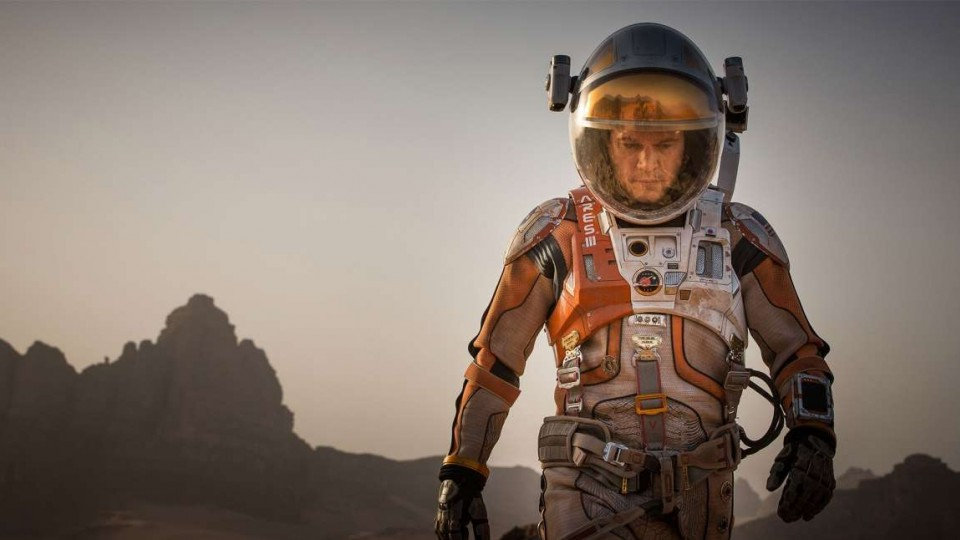The year is 2035. The crew of the Ares III probe the surface of the red planet hoping to find long term sustainability in its depths, when a dust storm kicks up out of nowhere, forcing the crew to return to their ship leaving behind one casualty. Welcome to the first fifteen minutes of the 2015 film The Martian adapted from the 2011 science fiction novel by the same name.
The movie follows the supposed casualty, a botanist by the name of Mark Watney. Injured and alone, Watney discovers the only way back to Earth will occur four years after his abandonment. With only a couple of potatoes left, Watney plants the eyes of the potatoes and figures out a way to create and distill water, which together, are Watneys only sources to stave off death by starvation and dehydration.
The plan seems genius: Potatoes have all the amino acids humans need for survival as well as plenty of carbohydrates for sustenance. In the end, the question of Watneys survival still stands.
The Pros:
The potatoes provide enough zinc, potassium, Vitamin C, and iron to sustain a human body for an extended period of time.
Potatoes contain all nine essential amino acids to keep the human body running.
The potatoes provide enough carbohydrates to keep a person full. The starch in potatoes are complex carbohydrates, and hence, take a longer period of time to break down.
The Cons:
Potatoes lack calcium, which could dramatically reduce bone health.
Potatoes do not contain Vitamin B in any of its forms.
Watney would not intake the proper ratios of fat (25%) and protein (30%) in his diet in order to keep his body healthy.
Would Watney survive?
Living on only potatoes, Watneys body would begin to take calcium from its bones to supplement the lack of calcium in its bloodstream. As a result, Watney would develop Osteoporosis, the degradation of his bones and teeth, after about two months of living on only potatoes. Weakened by a calcium deficiency, simple tasks could cause Watney extreme pain and might even cause his bones to fracture given more time. However, Watney might not even have the chance to break his bones when harvesting his potatoes. To save himself from immediate death, Watney had to perform surgery on himself. It can be presumed that during the surgery, he must have lost a decent amount of blood. To make matters worse, his calcium deficiency would not allow his blood to clot, and eventually hed die from losing blood in excessive amounts. Even if, by some odds, Watney happened to survive without losing gallons of blood or breaking any bones, eventually the Osteoporosis would wear his teeth down so much that he would not be able to consume his potatoes, and he would die from starvation.
Suppose, for a moment, that NASA anticipated the calcium issues and provided calcium supplements. After a year of being stranded on Mars, Watney would tire easily, be plagued with shortness of breath, and have lost sensation in a couple of his extremities. Essentially, Watney would have aged thirty years in a fraction of the time due to a lack of Vitamin B. He would barely have a stomach lining. Its an issue that would worsen exponentially worse over time, as the lining could no longer absorb the Vitamin B. This would likely be coupled with anemia, a deficiency of hemoglobin, causing fatigue and an increased heart rate, which would lower the number of red blood cells in ones body. While a Vitamin B deficiency might not kill Mark Watney, it could leave him immobile due to the sheer pain movement would cause.
Without the right amount protein, Watneys body would start drawing protein from its muscles. In this time, all of his hair would fall out, his nails would become brittle, and he would feel lethargic no matter how sleep he received. Fortunately, Watney would still recieve all of the essential amino acids, which would help his immune system in fending off disease.
In the most likely case, NASA would have already thought of the multitude of ways Watney could die from malnutrition and would have provided supplements to help the astronauts make it back to Earth alive. Despite taking his supplements every day, Watney would still develop Vitamin A, D, E and K deficiencies. These vitamins are fat-soluble, which means with the inadequate amount of fat Watney would receive from his potato-exclusive diet, he would still face symptoms from deficiency.
Vitamin A deficiencies, at the worst, lead to blindness. In the best case scenario, Watney would have fertility issues upon his return to Earth, would be unable to cry, and would suffer from eczema.
A couple months into his time on Mars, Watney would have severe muscle pains and develop osteoporosis anyway. His body would be unable to absorb the calcium supplements without Vitamin D, which would once again lead to his demise. Watney could die from various forms of heart disease, develop cancer, or his body might cut off blood circulation to his fingers and toes. If the latter were to happen for an extended period of time, Watney would have a case of necrosis (of which frostbite is one form) on his hands, literally.
If Watney were to scrape or bruise himself, his Vitamin E and K deficiencies wouldnt be of any help to him. Due to a lack of Vitamin E, his nerves might not send a signal to his brain that would be necessary to indicate a minor injury. Thanks to a lack of Vitamin K, his blood would not clot, and he would either a) bleed to death if he scraped himself, or b) die from internal bleeding.
Improvements To Be Made To This Diet:
Eating only potatoes would lead to many ailments, some of which are life threatening. Despite this, an Australian entrepreneur and cookbook author, Andrew Taylor, ate only potatoes, sweet and regular, seasonings, oils and Vitamin B12 supplements for a year. He exercised for 90 minutes a day and lost 120 lbs in the process.
Another way to increase the sustainability of this diet would be by adding 2% or lowfat milk to it. The milk contains fat to absorb any fat soluble vitamins, calcium to prevent against Osteoporosis, and Vitamin D to help absorb the calcium. By eating potatoes and milk in a 0.5:2 ratio for breakfast, 1:3 for lunch, 0:1.5 as a supplement in between meal times and 1:2 for dinner, the human body is able to process its food to get maximum nutrition out it. These ratios should be scaled to the number of calories that a person needs. However, please do not try this experiment at home. If the numerous ways to die were not enough of a reason to stave off trying this diet, it is important to note that Andrew Taylor worked under the guidelines of a dietician, and his blood samples were regularly tested to ensure that no major health complications arose.
The Bottom Line:
Watney could have survived his horrific trip to Mars, but even if he did, it would not be the way it was depicted in the movie. He would have been immobilized, blind and dying of cancer and heart disease. His rescuers would have needed to carry him to their spacecraft, where he would need immediate medical attention, in addition to a balanced, nutrient-rich diet. Watney would have been an inch from death, and upon his return to Earth, he would have been bedridden for the rest of his short life. Despite medical professionals best efforts, Watney would not survive on Earth for long enough to become a professor as depicted in the movie. In reality, the odds of survival were certainly not stacked in Watneys favor, but with luck, he might have stayed alive just long enough to tell his story.
Sources:
https://www.livescience.com/45838-potato-nutrition.html
https://www.nof.org/patients/what-is-osteoporosis/
http://theconversation.com/can-you-survive-eating-nothing-but-potatoes-54262
https://www.menshealth.com/weight-loss/a19536403/can-the-potato-diet-help-you-lose-weight-safely/

 Outsourcing to China is Depleting the United States GDP
Outsourcing to China is Depleting the United States GDP